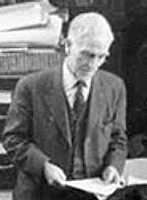I doubt there is not one family touched somehow by the ravages of war during the last 100 years - and for many before. And we should remember all the fallen with respect - but take seriously the notion it should never be that way again. The shibboleth that they fought so we may be free is partly true - but only after we liberate world society from the heavy yoke of the irrational capitalist system will we ever truly liberate humanity.
The ribbons arrayed the honours displayed
The medals jingling on parade
Echo of battles long ago
But they’re picking sides for another go.
The martial air, the vacant stare
The oft-repeated pointless prayer
“Peace oh’ Lord on earth below”
Yet they’re picking sides for another go.
The clasped hands, the pious stance
The hackneyed phrase “Somewhere in France”
The eyes downcast as bugles blow
Still they’re picking sides for another go.
Symbol of death the cross-shaped wreath
The sword is restless in the sheath
As children pluck where poppies grow
They’re picking sides for another go.
Have not the slain but died in vain?
The hoardings point, “Prepare again”
The former friend a future foe?
They’re picking sides for another go.
I hear Mars laugh at the cenotaph
Says he, as statesmen blow the gaff
“Let the Unknown Warriors flame still glow”
For they’re picking sides for another go.
A socialist plan the world would span
Then man would live in peace with man
Then wealth to all would freely flow
And want and war we would never know.
J. Boyle 1971




